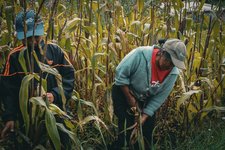What's new?: 'Targeted update' strengthens OECD Guidelines for Multinational Enterprises

On 8 June 2023, the OECD released a “targeted update” of the OECD Guidelines for Multinational Enterprises. Negotiations on the newly renamed “OECD Guidelines for Multinational Enterprises on Responsible Business Conduct” inevitably involved trade-offs and compromises. Nevertheless, OECD Watch believes the net result is positive. The majority of updates strengthen this authoritative global standard on responsible business conduct (RBC). In many areas, the revisions reinforce and therefore bolster other leading international norms on RBC, and on some topics the new Guidelines advance normative standards.
The update of the Guidelines is particularly timely as it comes at a key moment in the development of mandatory due diligence legislation, which is largely based on the Guidelines, in Europe and globally. These updates of the Guidelines are particularly important for the strengthening of the European Corporate Sustainability Due Diligence Directive as the position recently adopted by the European Parliament proposes to follow the lead of the OECD on elements to be included in the due diligence duty on environmental issues.
Key updates
OECD Watch considers these to be some of the most important updates that will strengthen the ability of rightsholders and civil society to hold corporations accountable for harms to people and the planet:
- Climate change and environmental impacts: The Guidelines now expect corporations to identify and address – through due diligence – their adverse impacts on climate change, animal welfare, biodiversity, deforestation, pollution, and other environmental concerns. Detailed text on climate change brings the Guidelines into alignment with the Paris Agreement, such as by explicitly requiring adoption and monitoring of mitigation targets that take into account scope 1, 2, and 3 greenhouse gas emissions. The Guidelines also address other climate concerns such as discouraging the use of carbon offsets and ensuring their integrity.
- Just transition: The Guidelines recognise the responsibility companies have in achieving a just energy transition and call on enterprises to avoid and address the social and environmental harms of their transition both from fossil fuels and towards renewable energy sources.
- Meaningful stakeholder engagement: The Guidelines call on enterprises to engage meaningfully with all stakeholders – in particular those affected – about business activity that may harm them. Engagement should be two-way, conducted in good faith, responsive to stakeholders’ views, timely, accessible, appropriate, safe, and adapted to remove barriers to engagement.
- Marginalisation, vulnerability, and intersectionality: The Guidelines expect enterprises to pay special attention to adverse impacts on marginalised or vulnerable groups and take account of the distinct and intersecting risks rightsholders may face due to their individual characteristics.
- Human rights defenders: The Guidelines call on enterprises to refrain from reprisals against human rights defenders, address harms of reprisals in their own and business partners’ operations, and help promote safe spaces.
- Respecting all value chain workers’ rights: The Guidelines call on enterprises to respect the rights of all workers in their value chains, not merely employees of the enterprise, including the rights to form unions and collectively bargain.
- Due diligence over impacts related to science and technology: The Guidelines now explicitly extend due diligence expectations to the digital sphere, requiring companies to identify and address their adverse impacts linked to technology and digitalisation.
- Downstream application of due diligence: The Guidelines assert clearly companies must undertake due diligence over impacts up- and downstream throughout their value chain, including those caused by consumers and users.
- Responsible disengagement: The new Guidelines clarify that companies must act responsibly when considering disengaging from a business relationship. This includes meaningfully consulting rightsholders and addressing potential adverse impacts related to disengagement.
Standards areas needing further guidance and limitations
In a few areas, the updates do not go as far as civil society had sought. OECD Watch will continue to advocate for improved guidance regarding effective engagement with groups experiencing vulnerability or marginalisation as part of due diligence, particularly with Indigenous Peoples, human rights defenders, women, and other rightsholders.
The biggest failing of the update is that it did not take the opportunity to improve implementation of the Guidelines through the National Contact Point (NCP) mechanisms. NCPs are critical to effective implementation, but have been largely toothless. While the updated text included some additional recommendations for NCPs, these remain mostly optional. The failure to ensure effective NCPs means legislation mandating due diligence in alignment with the OECD Guidelines is needed more urgently than ever.
Later this year, OECD Watch will release detailed guidance for civil society on the key changes and how to use the updated Guidelines most effectively in filing complaints, advocating for improved RBC policy and legislation, and engaging with companies and investors.
by Marian Ingrams, Director, OECD Watch; Katharine Booth, Researcher and Policy Advisor, OECD Watch; and Joseph Wilde-Ramsing, Director of Advocacy, SOMO


